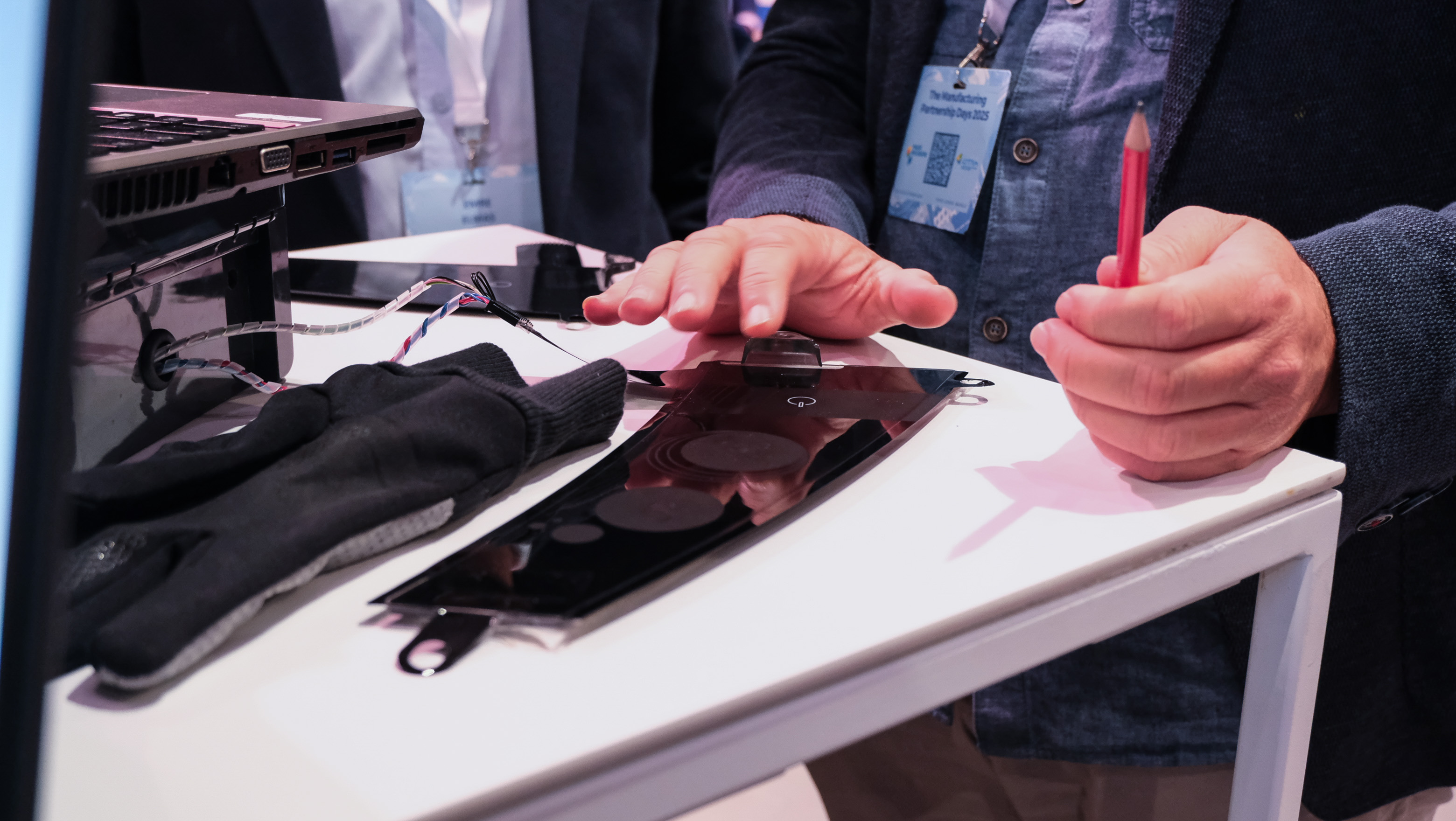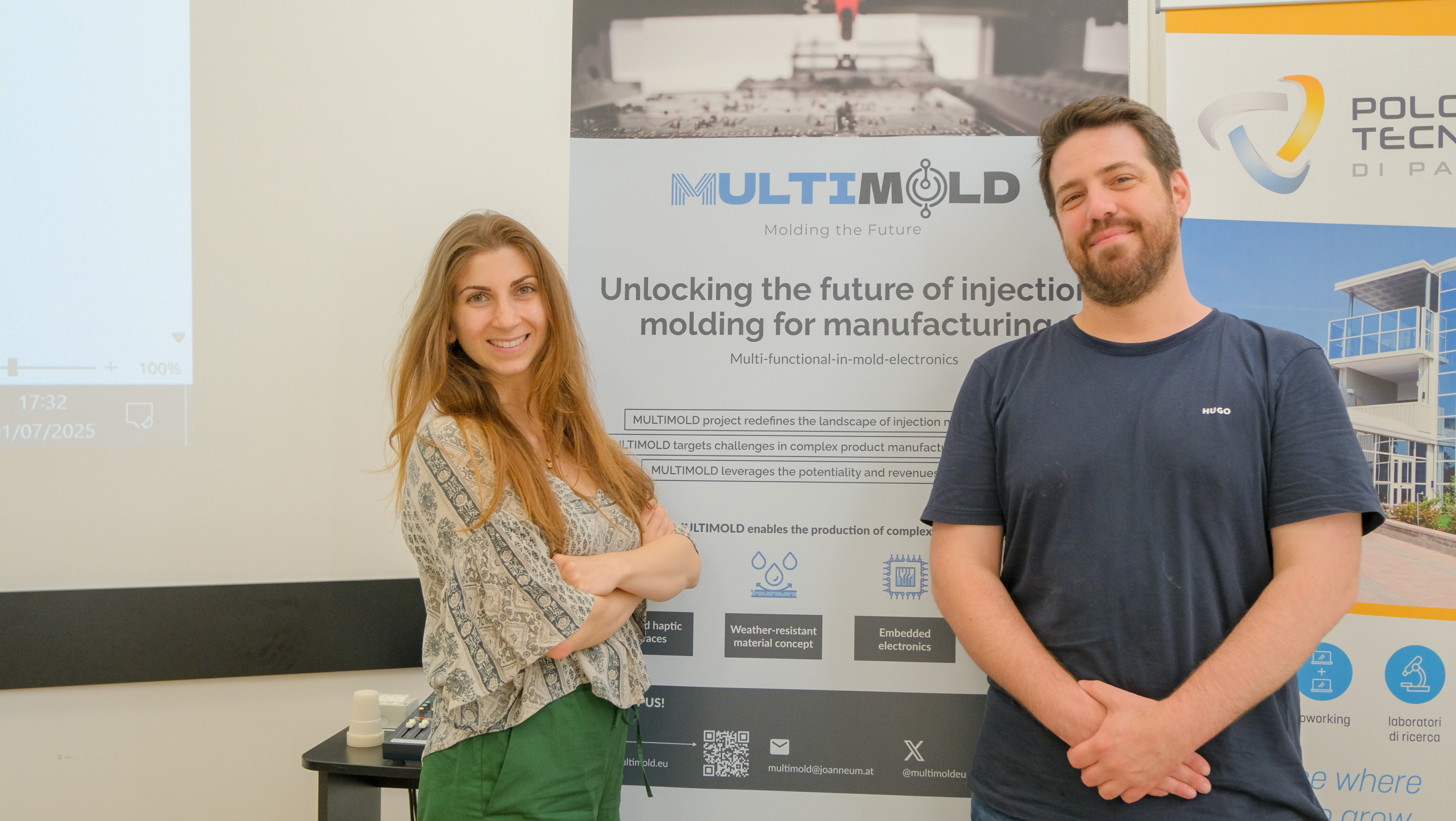Montanuniversitaet Leoben (MUL) is a technical university dedicated to unique core disciplines aiming at establishing sustainability in its value-added cycle, starting from the production and processing of raw materials to finished products made of high-performance materials, on to the disposal of the products and their recycling and reuse as secondary raw materials.
In this project the Institute of Polymer Processing of the Department of Polymer Engineering and Science is involved, which provides processing equipment from lab to industrial scale. It covers processing relevant material characterization (thermodynamic properties, rheology), kneaders, compounders, injection molding machines, film and pipe extrusion, blow molding and thermoforming. Most of the machinery is equipped with various sensors for process monitoring. Simulation software for injection molding and extrusion complements the laboratory equipment.
Role in MULTIMOLD project
The manufacture of in-mold electronics is a very complex process involving multiple production steps. A critical step at the end of the process chain is the over molding of the functional films containing electronic components such as LEDs, printed sensors, etc. with a polymer substrate in an injection molding machine. During the over molding process, the functional film with its components is exposed to high temperatures as well as mechanical loads such as shear stress and pressure.
MUL has the necessary equipment and experience to perform the overmolding experiments. Process simulation is used to evaluate the local thermal and mechanical conditions within the film and its components. While standard simulations are sufficient in the first phase of the project to provide an overall insight into the feasibility of the different case studies, more advanced simulation tools need to be developed to provide more detailed information about the local conditions and also potential damage to the composite. MUL has already developed similar tools in a previous project and can build on this knowledge in MULTIMOLD.
.jpeg)
In addition, MUL is very experienced in process-related material characterization, both for simulation and there cycling issues that will be addressed in this project. MUL will also overmold the samples for the disassembly experiments based on solvent-based recycling.
Montanuniversitaet Leoben – Member of the project
Assoc. Prof. Dr. Thomas Lucyshyn studied Polymer Engineering and Science at MUL, specializing in polymer processing. After his diploma studies, he completed his doctorate in 2009 at the Institute of Polymer Processing and finally habilitated there in 2016 in the field of polymer processing with focus on injection molding with a special emphasis on the mold and simulation. He is currently Associate Professor of Polymer Processing at MUL and Head of the of Injection Molding and Recycling Research Group.

“While in-mold electronics have proven themselves in terms of product performance and customer experience, but are problematic in the end-of-life scenario, I am pleased that the MULTIMOLD project also addresses the challenging issue of recycling, combining all partner competencies along the process chain to reach a new level - not only in in-mold electronics performance, but also in its sustainability.” - Thomas Lucyshyn, responsible key researcher for MULTIMOLD at MUL.











.jpg)






